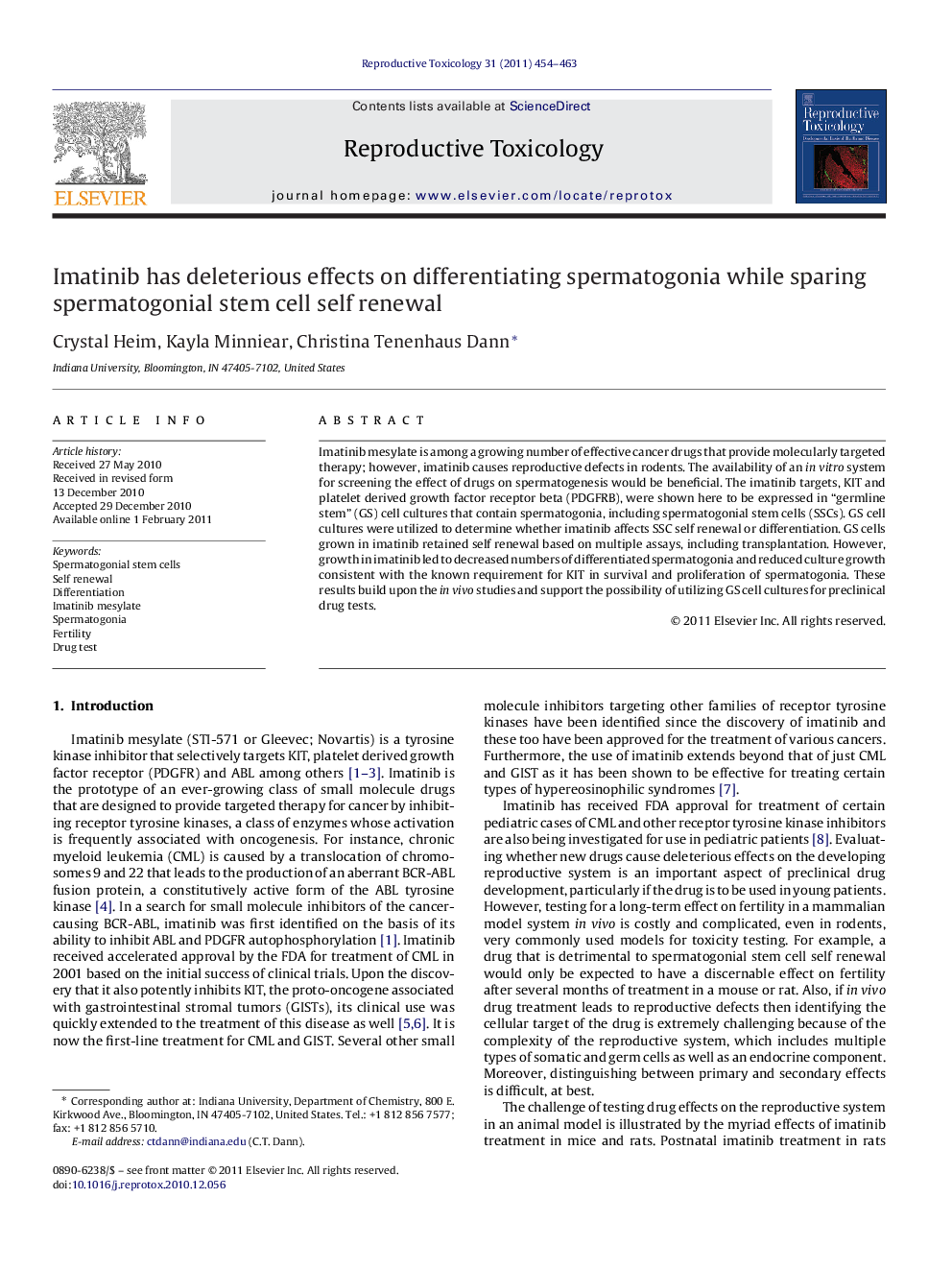| Article ID | Journal | Published Year | Pages | File Type |
|---|---|---|---|---|
| 2594342 | Reproductive Toxicology | 2011 | 10 Pages |
Abstract
Imatinib mesylate is among a growing number of effective cancer drugs that provide molecularly targeted therapy; however, imatinib causes reproductive defects in rodents. The availability of an in vitro system for screening the effect of drugs on spermatogenesis would be beneficial. The imatinib targets, KIT and platelet derived growth factor receptor beta (PDGFRB), were shown here to be expressed in “germline stem” (GS) cell cultures that contain spermatogonia, including spermatogonial stem cells (SSCs). GS cell cultures were utilized to determine whether imatinib affects SSC self renewal or differentiation. GS cells grown in imatinib retained self renewal based on multiple assays, including transplantation. However, growth in imatinib led to decreased numbers of differentiated spermatogonia and reduced culture growth consistent with the known requirement for KIT in survival and proliferation of spermatogonia. These results build upon the in vivo studies and support the possibility of utilizing GS cell cultures for preclinical drug tests.
Keywords
Related Topics
Life Sciences
Environmental Science
Health, Toxicology and Mutagenesis
Authors
Crystal Heim, Kayla Minniear, Christina Tenenhaus Dann,
